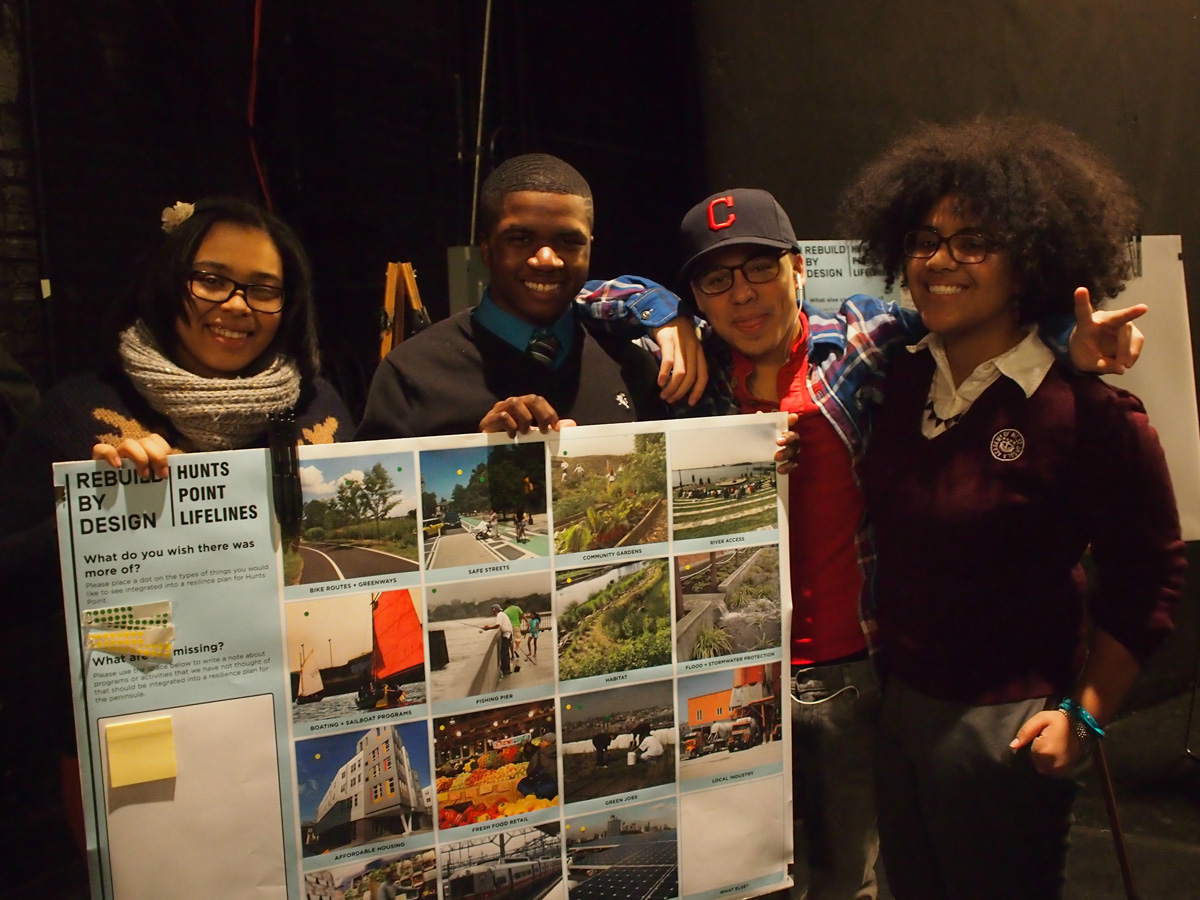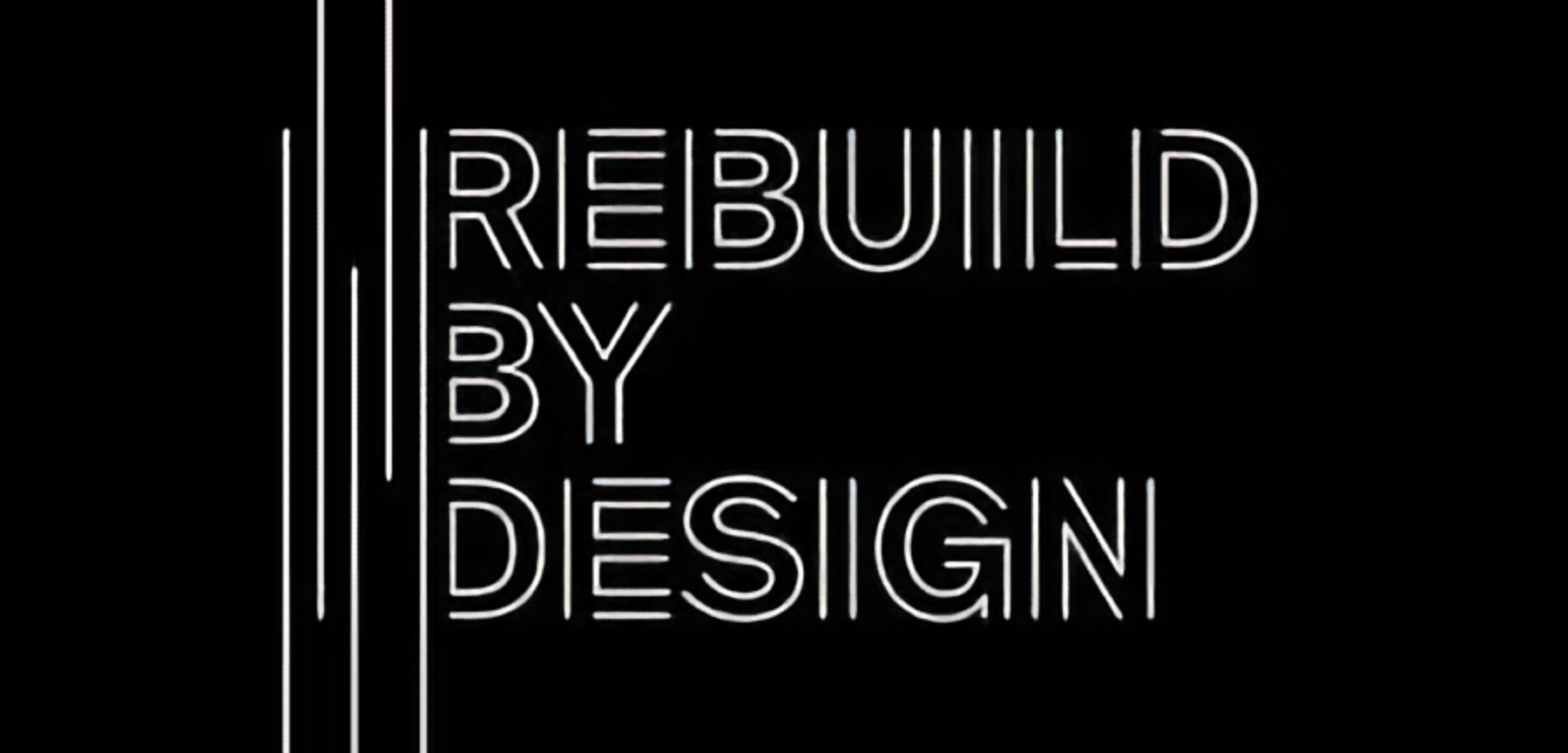Architectural Design: Design thinking is not enough. For resilient architecture and urbanism to meet the challenges of global warming head on, what is needed is systems thinking: an in-depth, interdisciplinary approach which recognises that change is constant. Claire Weisz highlights a number of small, innovative US firms that are leading the way, and describes some of their ventures to date.

Library
Since the Hurricane Sandy competition, Rebuild by Design, and the processes that were inspired by that work including, the National Disaster Resilience Competition, the Bay Area Resilient by Design Challenge, Water is Leverage, and others, have sparked interest in communities, governments academics, and researchers. To help researchers understand more about our work, and to continue to contribute to a growing portfolio of writings about the work, we have launched this library as a resource for all who are interested.
We would like to thank the University of Groningen for their partnership in locating and cataloging the articles and books that have examined our work. If you know of a resource that is not listed here, please let us know by sending an email to info@rebuildbydesign.org
If you are looking for the Hurricane Sandy Competition archives, please visit the New York Historical Society here.
Explores the spatial and social dynamics of cities worldwide, including a section that focuses on Rebuild by Design as written by Rebuild Principal Henk Ovink.
Architectural Design: To manage the impact of climate change, a mixture of global mitigation and local adaptation is needed. Alexandros Washburn presents three contrasting examples of how cities around the world have approached the latter, with varying degrees of success.
Korean Society of Hazard Mitigation: Briefly introduces variations in designing strategies and approaches in rebuilding that took place in areas of Tohoku( Kesennuma City), New York (New York City), and Leyte (Tacloban City).
Journal of Urban Design: Uses a framework to explore the discourses surrounding the Rebuild by Design competition. The framework is demonstrated by partly reconstructing the socio-political context of Rebuild by Design, which is organized in the wake of hurricane Sandy in New York. The paper demonstrates how specific discourses within the socio-political context of the RbD processes influenced the interpretation of the RbD process outcomes.
Chronicles the proposal to design offshore artificial barrier islands in the New York/New Jersey Harbor.
Water: Explores whether Rebuild by Design (RBD) provides governance structures and processes needed for the uptake of green infrastructure. The results of the study indicate that RBD brought a greater change in terms of governance processes when compared to governance structures.
Discusses the design of the Blue Dunes which was based on the Dutch approach. The approach was antithetical to the small-scale, stakeholder facilitated designs championed by Rebuild by Design.
Focuses on the role of social infrastructure in ensuring social justice in a democratic society and safe spaces for communities.
Architectural Design: Argues that it is important to not just laying down rules, but also encouraging innovation in developing strategies to withstand climate catastrophes, using the Resist, Delay, Store, Discharge plan for Hoboken to explain the argument.
How will society confront climate change? Faced with rising sea levels and more powerful storms, we all know that what worked in the past will not work in the future. The climate challenge is too urgent to ignore and too big to confront with our existing methods.
Too Big tells the inside story of the American federal response in the wake of Hurricane Sandy. The late 2012 storm that ravaged the New York–New Jersey region revealed the true physical and social vulnerabilities that all coastal cities face from sea level rise and extreme weather events. It underscored the need for fundamentally different approaches to create more resilient cities and coastlines. President Obama took on this challenge through an innovative, inclusive design process called Rebuild by Design: confronting established federal, state and local practices, championed by Henk Ovink, the Dutch Special Envoy for International Water Affairs who joined the American recovery effort.
In this book, Ovink and Boeijenga, together with Rebuild by Design’s key partners, give a firsthand account of this process: building coalitions and creating innovative solutions by running an intense international design effort in the aftermath of a devastating storm. Analyzing the competition’s groundbreaking formula for bringing all stakeholders to the heart of resilience planning, Too Big presents governments and communities an approach to become more responsive, more effective and more prepared in the face of climate change.
Too Big addresses the urgency of a battle we cannot afford to lose, but also shows a way forward, informing and inspiring everyone who has the ambition to change the world.
